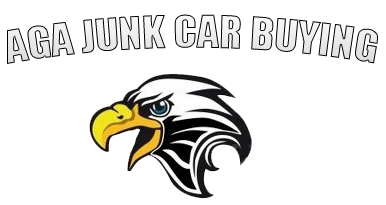Do you want your car to run smoothly for a long time? Proper maintenance is the key to ensuring the reliability and performance of your vehicle over time.
From regular check-ups to essential care routines, there are several steps you can take to keep your car running at peak performance.
Let’s explore the essential tips and practices that will help you maintain your car’s health and ensure it stays on the road for many years to come.
How do you keep your car running?
Extending the life of your car requires a combination of proper maintenance, care, and good driving habits.
Here are some of the best ways to ensure your vehicle stays on the road for as long as possible:
1. Regular maintenance:
Following the manufacturer’s recommended maintenance schedule is crucial. This includes oil changes, air filter replacements, brake inspections and more.
Neglecting maintenance can lead to problems such as sediment buildup in the engine, reduced fuel efficiency and brake failure.
For example, regular oil changes ensure that your engine stays lubricated, reducing friction and preventing premature wear.
2. Drive smoothly:
Aggressive driving, such as rapid acceleration and hard braking, overloads the vehicle’s engine, transmission and brakes.
This can lead to higher fuel consumption, faster component wear and increased risk of accidents.
Smooth driving reduces engine stress, extends transmission life and improves fuel efficiency.
3. Keep it clean:
Washing the car regularly removes dirt, salt and other contaminants that can cause rust and paint damage.
Cleaning the interior prevents stains, odors and helps maintain the value of the car.
For example, washing the car after driving on salty roads in winter prevents salt from corroding the metal.
4. Proper tire care:
Maintaining the correct tire pressure improves fuel efficiency, ensures even tire wear and provides better handling.
Rotating tires regularly helps tires wear more evenly.
Replacing worn tires prevents blowouts and maintains adequate traction, especially in wet or snowy conditions.
5. Use quality fuel and oil:
High quality fuel with proper octane levels can prevent engine knocking and improve fuel efficiency.
Using the recommended engine oil keeps the engine well lubricated and helps prevent excessive wear.
For example, the use of low-quality fuel can cause carbon buildup in the engine and reduce engine performance.
6. Parking:
If you have access to a garage or covered parking, use it.
This will protect your car from inclement weather, prevent sun damage to the interior and reduce the risk of hail or falling debris causing dents.
7. Address to problems promptly:
Ignoring warning lights or strange noises can lead to more serious problems.
If you hear a strange sound in the engine or feel unusual vibrations, have a mechanic inspect the problem to prevent it from getting worse.
For example, a worn timing belt should be replaced promptly to prevent engine damage.
8. Avoid overloading:
Carrying excessive weight in your vehicle can strain the suspension, brakes and other components.
This can reduce fuel efficiency and increase wear and tear on various parts.
9. Cooling system maintenance:
Your car’s cooling system is crucial to preventing overheating. Make sure the radiator, coolant levels and hoses are in good condition.
Overheating can cause major engine damage.
10. Invest in professional inspections:
Regular inspections by a qualified mechanic can detect potential problems early.
This is especially important before long trips or during seasonal changes.
An inspection can identify problems with brakes, suspension or other components that need attention.
By putting these habits into practice, you will not only prolong the life of your car, but also enjoy safer, more reliable and efficient driving.
What should you check regularly on your car?
Regularly checking the following components and systems of your car is essential to ensure their proper functioning, safety and longevity:
- Engine oil: Regularly check the oil level with the dipstick and follow the manufacturer’s recommended oil change interval.
- Tire pressure: Keep tires inflated to recommended levels. Proper tire pressure improves fuel efficiency, prolongs tire life and ensures safe driving.
- Tread: Inspect tire tread depth to ensure it meets legal requirements and provides adequate traction, especially in wet or icy conditions.
- Brake system: Look for signs of brake fluid leaks, unusual noises or vibrations when braking.
- Coolant level: Maintaining the correct ratio of coolant to water prevents overheating and corrosion.
- Transmission fluid: If your car has a transmission dipstick, check the fluid level regularly.
- Fluid levels: In addition to oil and coolant, regularly check the levels of other fluids, such as power steering fluid, windshield washer fluid and brake fluid.
- Air filter: A dirty air filter can reduce fuel efficiency and engine performance.
- Windshield wipers: Make sure the windshield wipers are in good condition, as clear visibility is essential for safe driving, especially during inclement weather.
- Exhaust system: Listen for unusual noises from the exhaust system. Rust or holes in the exhaust pipe can affect vehicle performance and contribute to pollution.
- Suspension and steering: Watch for unusual vibrations, sounds or handling problems.
- Check engine light: Do not ignore the check engine light. If it comes on, have the vehicle inspected to identify and fix any underlying problems.
- Battery: Check the battery terminals for corrosion and make sure the battery is securely fastened. If you have difficulty starting the car, have the battery and charging system checked.
- Lights: Regularly check that all exterior lights (headlights, taillights, brake lights, turn signals) are working properly.
In conclusion, practicing proper car maintenance is essential for prolonging the lifespan of your vehicle, ensuring safe and efficient driving, and preventing costly repairs.
By regularly checking essential components and systems, and addressing issues promptly, you can keep your car in optimum condition.
Remember, preventative maintenance is always more affordable than reactive repairs.
And if you want to celebrate after your car maintenance, take note of the most important celebrations in Chicago.
If you decide not to keep your car and put it on sale, contact AGA Cash Junk Cars Inc. We are the best junk car buyers in all of Chicago. We pay cash on the spot for all types of vehicles in any condition, running or not.
Give us a call (312) 401-2157 to get the highest cash offer.

